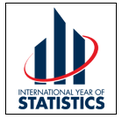Seems that the continuing instability in Iran, and threats of closing or disrupting ocean freight traffic in the Strait of Hormuz, are to blame for the creeping rise in gasoline prices.
The Strait of Hormuz is considered one of the most, if not the most strategic strait of water on the planet. Through its waters, in giant ocean-going tankers, passes much of the oil from Bahrain, Iran, Iraq, Kuwait, Qatar, Saudi Arabia and the United Arab Emirates. Bordered by Iran, Oman's Musandam Peninsula and the United Arab Emirates, this stretch of water is of obvious military significance, and any disruption, or fear of disruption, could send prices at the pump soaring to new highs. Or so we are lead to believe is the cause?
This type of geopolitical uneasiness is music to the ears of speculators. What speculators do is bet on what price oil will reach by a future date. Speculators make no investment in oils itself, derivatives are the instrument of choice. A derivatives value is based on the value of oil and if the price will increase or decrease in the future. Speculators never touch the oil, they never even buy or sell it; they just bet on the future.
Speculators with large capital, and you have to have large capital to play at this game, can purchase a substantial number of futures derivatives at a price that can actually direct the market.
A speculator is much like Entertainment Tonight, their business is rumor and gossip, not fact. Buy creating this gossip whirlwind, and buying large amounts of futures at higher prices, producers are encouraged to horde the valuable commodity in hopes that they will get a higher price in the future. Future prices go up based on the higher anticipated rate and current prices go up due to decreased amount of oil on the market. A double whammy.
Investment firms that can influence the oil futures market stand to make a lot; oil companies that both produce the commodity and drive prices up of their product up through oil futures derivatives stand to make even more.
Investigations into the unregulated oil futures exchanges turned up major financial institutions like Goldman Sachs and Citigroup. But it also revealed energy producers like Vitol, a Swiss company that owned 11 percent of the oil futures contracts on the New York Mercantile Exchange alone [source: Washington Post].
As a result of speculation among these and other major players, an estimated 60 percent of the price of oil per barrel was added; a $100 barrel of oil, in reality, should cost $40 [source: Engdahl].
Not sure we can blame President Mahmoud Ahmadinejad for our next expensive trip to the pump. I only wish those responsible would sport white windbreakers too. They would be easier to spot. What are we going to do? Sua Sponte.
Bradford C. Bruner for Sua Sponte Wealth Management
The Strait of Hormuz is considered one of the most, if not the most strategic strait of water on the planet. Through its waters, in giant ocean-going tankers, passes much of the oil from Bahrain, Iran, Iraq, Kuwait, Qatar, Saudi Arabia and the United Arab Emirates. Bordered by Iran, Oman's Musandam Peninsula and the United Arab Emirates, this stretch of water is of obvious military significance, and any disruption, or fear of disruption, could send prices at the pump soaring to new highs. Or so we are lead to believe is the cause?
This type of geopolitical uneasiness is music to the ears of speculators. What speculators do is bet on what price oil will reach by a future date. Speculators make no investment in oils itself, derivatives are the instrument of choice. A derivatives value is based on the value of oil and if the price will increase or decrease in the future. Speculators never touch the oil, they never even buy or sell it; they just bet on the future.
Speculators with large capital, and you have to have large capital to play at this game, can purchase a substantial number of futures derivatives at a price that can actually direct the market.
A speculator is much like Entertainment Tonight, their business is rumor and gossip, not fact. Buy creating this gossip whirlwind, and buying large amounts of futures at higher prices, producers are encouraged to horde the valuable commodity in hopes that they will get a higher price in the future. Future prices go up based on the higher anticipated rate and current prices go up due to decreased amount of oil on the market. A double whammy.
Investment firms that can influence the oil futures market stand to make a lot; oil companies that both produce the commodity and drive prices up of their product up through oil futures derivatives stand to make even more.
Investigations into the unregulated oil futures exchanges turned up major financial institutions like Goldman Sachs and Citigroup. But it also revealed energy producers like Vitol, a Swiss company that owned 11 percent of the oil futures contracts on the New York Mercantile Exchange alone [source: Washington Post].
As a result of speculation among these and other major players, an estimated 60 percent of the price of oil per barrel was added; a $100 barrel of oil, in reality, should cost $40 [source: Engdahl].
Not sure we can blame President Mahmoud Ahmadinejad for our next expensive trip to the pump. I only wish those responsible would sport white windbreakers too. They would be easier to spot. What are we going to do? Sua Sponte.
Bradford C. Bruner for Sua Sponte Wealth Management

















































